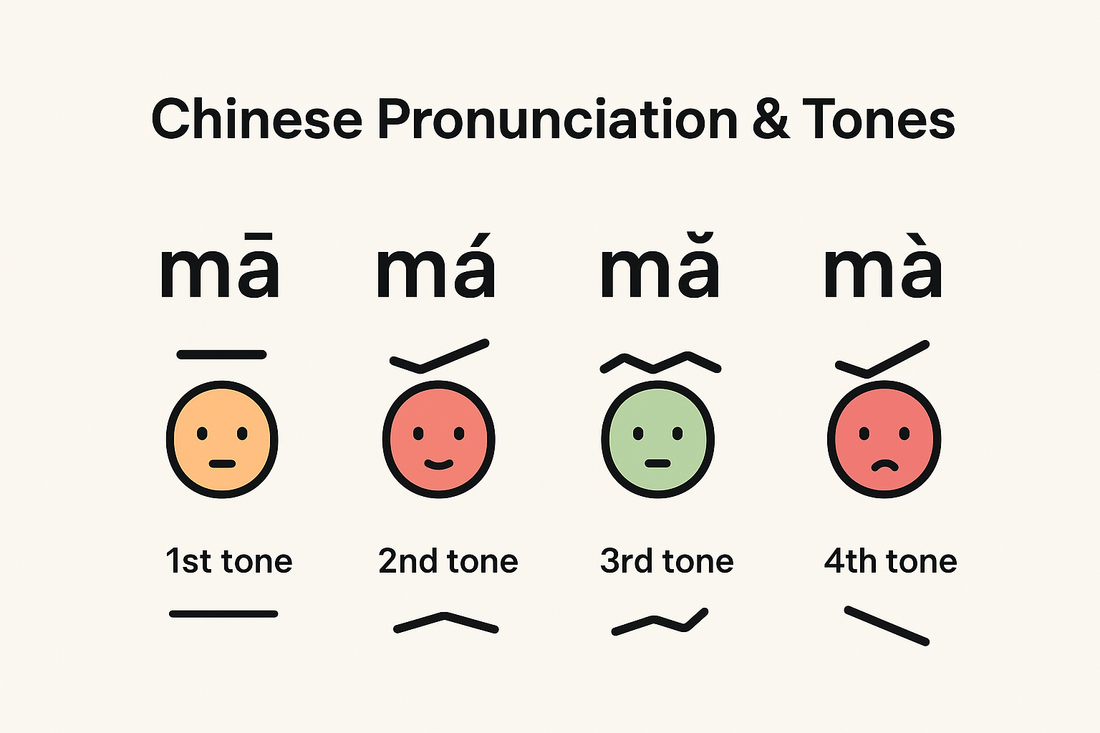
The Biggest Challenges for Non-Native Chinese Learners: Tones and Pronunciation
Share
Learning Mandarin Chinese is an exciting journey, but for non-native speakers, it comes with unique challenges. One of the biggest hurdles is mastering tones and pronunciation. Unlike English, Mandarin is a tonal language, where the pitch or intonation of a word can completely change its meaning. This article explores why tones are so difficult and offers practical strategies to overcome them.
Why Are Chinese Tones So Hard?
Mandarin has four main tones and a neutral tone. Each tone can change the meaning of a word, even if the spelling remains the same. For example:
-
mā (妈) – mother
-
má (麻) – hemp
-
mǎ (马) – horse
-
mà (骂) – scold
-
ma (吗) – question marker
For non-native speakers, using tone to distinguish word meanings is completely unfamiliar, making it difficult to both hear and pronounce tones correctly.
Common Pronunciation Challenges
Besides tones, Mandarin pronunciation has several other difficulties:
-
Initials and finals: Sounds like "zh," "ch," and "x" do not exist in many other languages, making them hard to pronounce accurately.
-
Pinyin system: Pinyin helps learners read Chinese characters, but its sounds do not always match the pronunciation patterns of non-native speakers’ mother tongues, which can be confusing.
-
Syllable structure: Mandarin syllables often end in vowels or nasal sounds, which may feel unusual to non-native speakers.
-
Tone sandhi (sound change) rules: Modern Mandarin also has tone-change rules that many learners—and even some Chinese teachers—are unaware of. This is why some learners, even after years of study, still sound robotic, speak with low fluency, or struggle to sound natural.
Effective Strategies for Mastering Tones and Pronunciation
-
Listen and imitate: Regularly listening to native speakers and mimicking their pronunciation helps internalize correct tones and sounds. Use audio recordings, language apps, or online courses.
-
Learn the Pinyin chart: Familiarize yourself with initials and finals to build a solid foundation for accurate pronunciation.
-
Practice tone pairs: Focused practice on tone combinations helps learners distinguish tones more effectively, e.g., practicing mā (妈) and mǎ (马) together.
-
Record yourself: Recording your speech and comparing it with native speakers helps identify areas for improvement.
-
Seek professional guidance: The most effective way to master tones and pronunciation is to learn with an experienced Chinese teacher who can correct mistakes in real time and provide extensive speaking practice.
-
Consistent daily practice: Even short daily sessions accumulate into significant progress over time.
For non-native speakers, mastering Chinese tones and pronunciation is challenging but achievable. The key is to listen, speak, practice, and receive feedback consistently, ideally under the guidance of a professional teacher. With persistence and the right strategies, you can significantly improve your Mandarin and speak more fluently and naturally.
If you want to improve your tones and pronunciation, you can book lessons with Ivy at :https://thenicebazaar.com/products/learn-chinese-tones-and-pronunciation
